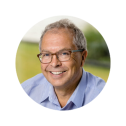

Investors may finally be catching on to the passive investing benefits of exchange-traded funds (ETFs), but an active approach is still needed in choosing the right one.
That is the bullish view of Belgian-born Alexis Marinof, Emea head of Standard & Poor’s depositary receipt (SPDR) ETFs and managing director at State Street Global Advisors, who is looking to help the business build its presence, particularly in Europe.
He joined State Street Global Advisors in 2003 and is passionate about passives. He explained: “It is always a good time to be passive. It is hard to time the market from an active point of view, whereas you know where a passive manager will be.
“Not all passive managers are equal though. Just because you buy an ETF doesn’t mean you have the best in class. You need to do comparisons as you would for an active manager.
“You need to look at how money is managed – is it physical or synthetic, what is the track record, what are the management fees?”
He said there was still work to do to generate awareness of the benefits of ETFs, adding: “Traditionally, the UK market is very active. That has been the case for a number of years. I don’t expect that to change immediately.
“Advisers still like to deal with active managers, but their clients are seeing that passives are gaining momentum.
“We believe active management has a role to play in a diversified portfolio, but the bar is quite high, you need to be able to allocate to the best in class asset manager and monitor the portfolio and reallocate.”
In comparison, Mr Marinof said ETFs provide more transparency as you can get real-time performance data from an exchange and they are lower cost.
There are 99 ETFs in the SPDR range, covering fixed income, smart beta, sectors and equities, totalling $451.8bn (£341bn) in assets under management (AuM) worldwide.
Charges range from 9 basis points to 55 basis points, depending on the strategy chosen.
Their biggest focus at the moment is on fixed income, where clients are trying to reduce risk.
Mr Marinof said: “We launched 11 new fixed-income products in February – it was a good call. Clients are focused on their fixed-income portfolio, and most of the flows we have seen in the industry in Europe have been in fixed income.
Another popular area is smart beta ETFs that are passive, but systemically manage money using factors such as momentum or value rather than an active approach on market cap weighting.</p><p>He uses the example of the SPDR S&P Dividend Aristocrats fund that holds US companies that have increased dividends every year for at least 20 consecutive years. It holds £2.7bn of AuM and has returned 68 per cent over the past three years.
He said: “Smart beta is raising the bar even more for active managers as they can’t just rely on size. They need to add value on top of that.”
But Mr Marinof is not resting on his laurels. He added: “My focus is on the European market. In Europe we are eighth in terms of assets under management, while globally we are third.</p><p>“We have a lot of work to do to grow this faster; in terms of new assets, we are having commercial success as we rank third.
“We want to get in a positon that is more aligned with our global ranking.
“Over the past three years we have worked on infrastructure and product offering as well as our distribution and sales team.“The idea is to be close to clients and speak in their language on a day-to-day basis.”
Mr Marinof said that while the access, tradeability and transparency of ETFs were all very positive arguments, he recognised there were some hurdles.</p><p>He added: “Fragmentation is difficult across markets in different countries.
“ETFs are not yet a unified and harmonised market. That makes it more difficult to give investors what they need everywhere, such as in Eastern Europe or southern parts of the continent.”
However, he did not see Brexit as an issue for ETFs despite concerns for the City once the UK leaves the EU.
He said: “I believe the City will continue to be important for the financial industry globally. This is where clients want us to list. London remains probably the best city in the world.”
Whatever the hurdles, Mr Marinof is ultimately excited about the challenge, adding: “We are very fortunate that we are in a business that is growing. ETFs are the most democratic investment tool invented over the past few years. You can be one of the most powerful investors or Mr x in the UK, and you will be charged the same.”
Alexis Marinof Career Ladder
State Street Global Advisors, August 2003 – present
Emea head of SPDR ETFs managing director, London (May 2013 – Present)
Emea distribution chief operating officer, managing director, London (Oct 2013 - Sept 2015)
Head of Middle East and Africa, managing director, Dubai (Feb 2008 - April 2013)
Head of the Nordic Region vice-president, Brussels (Jan 2006 - Jan 2008)
Nordic Relationship manager officer, Brussels (Aug 2003 - Dec 2005)
JP Morgan, London, UK May 1999 - Oct 2002
Joined as an intern in May 1999, selected for the graduate program in October 1999. Promoted to Associate in early 2002.



